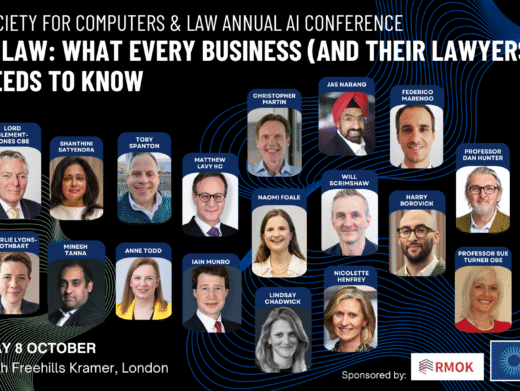In Rugby Football Union v Consolidated Information Services Limited (Formerly Viagogo Limited) (In Liquidation) [2012] UKSC 55, the Supreme Court has dismissed an appeal against the granting of a Norwich Pharmacal order. Lord Kerr, with whom the other law lords agreed, reinforced the test for determining the proportionality of disclosure.
He accepted the test adumbrated by Arnold J in Goldeneye (International) Ltd v Telefonica UK Ltd [2012] EWHC 723 (Ch) (at [117]), where rights under the Charter (or the ECHR) have to be balanced, including the need for ‘an intense focus on the comparative importance of the specific rights being claimed in the individual case’ and the need to take account of the justifications for interfering with or restricting each right; the proportionality test must then be applied. Lord Kerr said (at [45]-[46]):
Background
The RFU is responsible for issuing tickets for all international and other matches played at Twickenham. It is the RFU’s deliberate policy to allocate tickets so as to develop the sport of rugby and enhance its popularity. Most tickets are distributed via affiliated rugby clubs, referee societies, schools and other bodies. The distribution thereafter is subject to different rules depending on the nature of the body in question. Member clubs are permitted to sell some or all of their ticket allocation (up to a combined maximum of 4,837 tickets per match across all member clubs) to official licensed operators for use in corporate hospitality packages.
The RFU’s terms and conditions stipulate that any resale of a ticket or any advertisement of a ticket for sale at above face value will constitute a breach of contract rendering the ticket null and void. This condition is printed on the tickets and applicants are warned of it on ticket application forms. A further term stipulates that the tickets are property of the RFU at all times.
Viagogo (now in liquidation) operated a web site which provided the opportunity for visitors to the site to buy tickets online for a number of sporting and other events. Sellers would register their tickets with Viagogo and a price would be suggested based on current market data. Viagogo received a percentage of the sale.
The RFU monitors ticket re-sale web sites in an attempt to discover whether and by whom tickets were being sold above face value. This effort was frustrated, however, in many instances by the anonymity offered by web sites including Viagogo.
In the run up to the international rugby matches in autumn 2010 and the Six Nations tournament, the RFU discovered that Viagogo had been used to advertise thousands of tickets for the matches at Twickenham. Tickets with a face value of £20 to £55 were being advertised for sale at up to £1,300. After a request for information about the identity of those selling the tickets was refused, the RFU issued proceedings against Viagogo seeking information which it required in order to take action to protect its policy in relation to tickets.
The High Court granted the RFU a Norwich Pharmacal order requiring Viagogo to disclose the identities of those involved in the sales. The order was made on the grounds that the RFU had a good arguable case that those selling and purchasing the tickets had been guilty of breach of contract and that it was appropriate to grant the order for them to obtain redress.
Before the Court of Appeal, Viagogo introduced a new ground of appeal to the effect that granting the order represented a disproportionate interference with the rights of the potential wrongdoers under the Charter of Fundamental Rights of the European Union, Article 8, which guarantees the protection of personal data. The Court of Appeal upheld the decision of the High Court and decided that the RFU had no readily alternative means of pursuing the wrongdoers. On the new ground the Court of Appeal held that interference with the personal data rights of the individuals was proportionate in light of the RFU’s legitimate objective in obtaining redress for arguable wrongs.
Official Judgment Summary
Lord Kerr considered the principles involved when making a Norwich Pharmacal order [14-18]. The need for an order for disclosure will only be found to exist if it is necessary and proportionate in all the circumstances [16]. The essential purpose of an order was to do justice in the case. This involved a careful weighing of all the relevant factors including the strength of the cause of action, whether those who have committed the alleged wrong knew or would have been likely to know that what they were doing was unlawful and the privacy rights of those whose identities were to be revealed [16-17].
Many of the factors involved in deciding whether to make a Norwich Pharmacal order are relevant to an assessment of whether disclosure is proportionate in the context of article 8 of the Charter [18].
Article 8 of the Charter was applicable as the order of the High Court involved disclosure of private data and thus was in the material scope of European Law [32].
Lord Kerr held that the appropriate test of proportionality under article 8 of the Charter involved weighing the benefit of the information being sought by the RFU against the impact that disclosure was likely to have on the individual concerned [33-36]. The appellant was wrong to suggest, however, that the assessment had to be carried out solely by reference to the particular benefit that obtaining information in relation to an individual might bring [36-37]. It was artificial and unrealistic to suggest that the RFU’s aim of discouraging others in the future from flouting its rules should not be considered [37]. The facts of each case must be considered individually but there was nothing in the European cases cited or otherwise which supported the notion that the wider context for which the RFU wished to have the information should be left out of account[40].
While there should be an intense focus on the rights claimed by the individuals concerned, this was not a case where disclosure would result in oppressive or unfair treatment. The only information sought was the names and addresses of individuals who had bought and sold tickets in clear breach of the RFU’s ticket policy [43-45].
The particular circumstances affecting a person whose data were sought may in some limited cases displace the interests of the applicant for disclosure even where there was no feasible alternative way of getting the information. This was not such a case, however [46].




